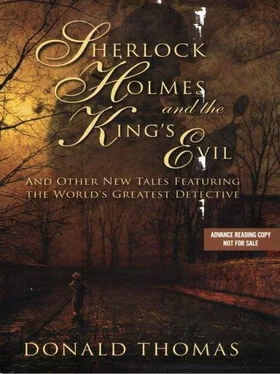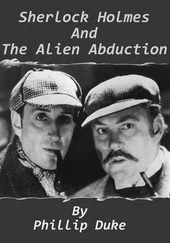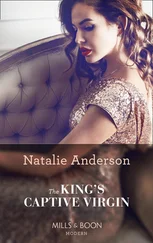“ Sidney Street.”
I was not given the number of the building but, if even half of what Holmes had told me was true, I should not need one. My cabby drove the half-mile through Stepney, past the deserted Anarchist Club, down Hawkins Street -and then no further. A helmeted constable stepped out into the roadway ahead of us, swinging his bulls-eye lantern side to side to bring the cab to a halt. As he did so, I noticed in the beam of light that snow had begun to fall. There were no tracks of other wheels to be seen.
“No way through, sir,” The policeman’s face was at the window. “The road ahead is blocked off. If you want to drive west, you must turn back and go down to Commercial Road.”
“I am a medical man, Dr John Watson. I have a rendezvous with Mr Sherlock Holmes. I understand he is with Major Wodehouse and Mr Churchill.”
“That’s different then,” the policeman said, opening the cab door, “I shouldn’t wonder if you weren’t needed presently.”
I paid off the cabby and followed the policeman through the thin drifts of the falling snow. I had not brought my medical bag with me but just then I could see-or hear-no reason why I should need it. Nor had I packed my revolver in my pocket.
Perhaps it was the snow which gave Sidney Street its sinister appearance as the clocks struck five. More probably it was the sight of a formation of men standing absolutely motionless in a side-street and uttering no sound. If this was Anarchist Communist revolution, it seemed just then to be a remarkably silent affair.
Sidney Street, as we came to its corner, was at least forty feet wide. Its terraces of plain red-brick working men’s houses faced one another. The block of eight houses which was now the centre of attention, Martin’s Buildings, was named after its owner and had been built ten years earlier. Each house had about ten rooms located on several floors. At the rear they overlooked a jumble of yards, sheds, and alleyways. At the front, the windows had a clear view across the street but only restricted visibility along its length. Immediately opposite the house which had become the focus of interest was a yard with a wooden fence and gate. Its paintwork dimly proclaimed “Isaac Dickholtz, Coal Merchant and Haulier.” On either side of the street, some of the houses had little shops on their ground floors with grilled windows and shabby black paint.
Further off, at the next road junction north, stood the tall buildings of Mann and Crossman’s Brewery with a yard and stables to the rear. The van gates also opened opposite Martin’s Buildings. In the other direction, the Rising Sun public house, which we were now approaching, occupied the next corner site on the other side of the road. The flat roofs of the Rising Sun and the cooling tower of the brewery both offered a vantage-point, looking respectively north and south along the thoroughfare towards 100 Sidney Street. There was still no sight nor sound of a gang of Anarchist assassins.
In the dim lamplight of the early morning, the large but silent body of dark-clad police cutting off the thoroughfare at either end was concentrated in two side streets, out of view of the windows of houses in the middle of the block. As to the suspect house itself, there might be fifty armed gunmen ready to fight to the death-or one-or none.
Just as we drew level with a back lane, running along the rear of the houses, I saw three figures. Two of them were uniformed police officers and between walked a young woman, barefoot in her underclothes, her white petticoat immediately visible.
“They are evacuating the other houses in Martin’s Buildings,” said Sherlock Holmes, just behind me. I gave a start for I had neither seen nor heard him approach. “The Home Secretary is here with Major Wodehouse, but that is for your ears only. We do not want every reporter in London getting under our feet or betraying his presence to the enemy, for he would immediately be at risk.”
“How many gunmen are there?”
He drew me towards the street corner outside the bar-room windows of the Rising Sun, on the opposite side of the street from Martin’s Buildings.
“No one knows. We have the names of two. Fritz Svaars and Yoshka Sokoloff, otherwise known as The Limping Man. They are not in Russia after all, it seems, and both are very efficient shots. Others who will try to come and go may keep up an impressive fusillade. Piatkoff, if he is in there, will be their commander. ”
“And the police?”
“Lestrade is on his way but this is a matter for marksmen and the police have none. Twenty or thirty constables have occupied the houses on the far side of the street, as well as the vantage-points of the brewery and the flat roof of the Rising Sun. Several of their men are armed but that will not do.”
“And Mr Churchill?”
Holmes chuckled.
“He has taken command from the Commissioner of Police, as he always meant to do. Major Wodehouse tells me that ‘Winston likes a straight fight.’ A telegraph has gone to the Secretary of State for War requesting the immediate release of a detachment of the Scots Guards from duties at the Tower of London. That too is for your ears only, though they will be here within the hour.”
As we groped our way up the dimly-illuminated staircase of the Rising Sun to the darkness of its flat roof, I thought of the repercussions of Scots Guards and straight fights, if this should prove to be a fuss about very little. As we came out into the open air, a city clock across the quiet streets struck quarter-past five. It crossed my mind that at this time of year it would hardly be light much before eight.
Close at hand there were three small groups, engaged in quiet conversation. One of these included Major Wodehouse and the Home Secretary, who was dressed in his long coat with its velvet collar and cuffs and his tall hat of black silk. From the gruff confidence of Winston Churchill’s voice and his face as I had seen it in a magazine photograph, I had imagined a much taller man. Yet, though he was burly in build, I guessed that Sherlock Holmes topped him by almost a foot.
For the next hour or so we were pestered at intervals by the landlord, who had hoped to hire out his flat roof to newspaper reporters at a sovereign a time. Major Wodehouse’s aide told him briskly to “cut along” and leave us to our business. It was no part of the plan to have the press in attendance before there were events to report. Mr Churchill’s instructions were also positive in another matter. There was to be no battle until the sky was light enough for us to see who we were shooting at and to make it more difficult for our opponents to enter or escape from the houses on the far side of the street.
“It will be the easiest thing in the world, sir,” interposed Sherlock Holmes, “for those opponents to break through the ceilings of the upper rooms and travel from one house to the next. In the roof spaces there may be no proper dividing walls and, if there are, they will be no more than a single thickness of brick, easily broken through. If that happens, the battlefront will be eight houses long.”
“Quite so, Mr Holmes,” the Home Secretary said gruffly, “I am obliged to you for your very salutary reminder.” Mr Churchill then stepped behind the shelter of a chimney stack and presently I noticed the faint glow of a cigar, concealed by the brickwork from the street below.
We had a bitter couple of hours, waiting for the sky to lighten. At intervals, the landlord appeared with tots of rum and sandwiches of ham or tongue. Finally, when the steeple clocks had struck seven, the Home Secretary said,
“Very well gentlemen, let us proceed. Everyone, unless instructed otherwise, will remain under cover and out of sight.”
He descended the stairs, followed by Major Wodehouse and his aide, then by Captain Nott-Bower, who was Commissioner of the City of London Police. Sherlock Holmes and I had been bidden to bring up the rear. I could not say what use we might be but when my friend went down I kept him company. In the saloon bar of the public house, Lieutenant Ross of the Scots Guards in his greatcoat and cap was already in attendance. Though it had taken some time to rouse the Secretary of State for War and obtain permission, a detachment of the regiment, including two sergeants who were musketry instructors and nineteen private soldiers, had volunteered for this duty. Lieutenant Ross had come on ahead and the volunteers were on their way.
Читать дальше












